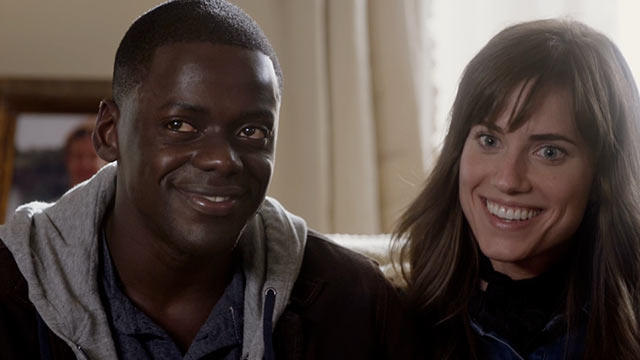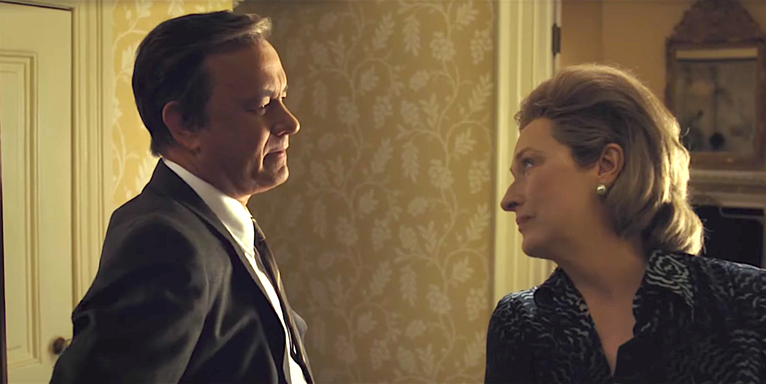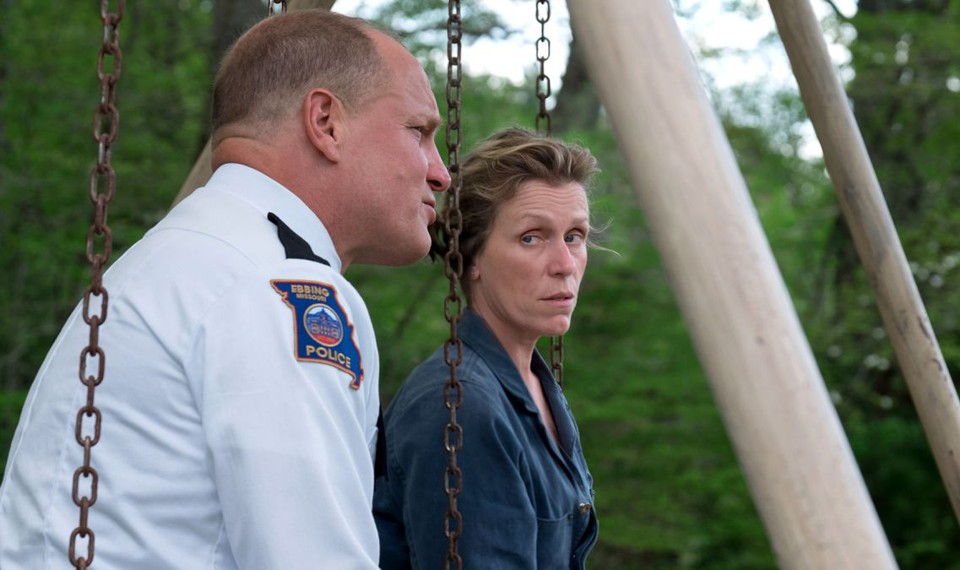Hello, old blog friend.
It’s been far, far too long since I’ve visited you. Life got in the way, sad to say. There was a stretch of time there where I wasn’t watching movies at all, and there was another stretch of time where I was watching a lot of television instead. How’ve you been? I moved across the country, got and quit jobs, had highs and lows, and now, here we are: at the beginning of 2018, and it’s award season.
I’ve been lucky enough, by circumstance, to see nearly every movie that’s in heavy awards consideration this year. One or two have fallen by the wayside: I’m not a huge fan of horror movies, so I didn’t see certain big releases, and some films, even in Burbank, California on January 14th, are still not in my local theaters.
Now, there’s a lot I could talk about about this year’s award season. I could talk about feminism in the industry, and the Times Up movement. I could talk about feminism in the films themselves, and how representation changed so much in such a short stretch of time. I could even talk about last year’s Oscars, which I still have yet to really do, in any kind of organized fashion- but instead, I’m going to do the one thing I feel like I, a twenty five year old underemployed mess with a master’s degree and way too much self doubt feels qualified to do:
Let’s talk about the movies.
Ladybird

Ladybird made a hell of a lot of headlines for being the highest rated film in Rotten Tomatoes history this year, but for some reason, I still put off seeing it by a couple days. I had absolutely no doubt I’d like the movie; of course I liked the movie. This movie is my story. It’s also my best friend’s story, director Greta Gerwig’s story, Juno‘s story, and most people who have been a middle class white teenager in America’s story.
This movie was never going to set the bar for original storytelling: it’s a story that’s been told a million times told well, again. The acting’s fantastic, it’s fun to watch, and I loved the screenplay, but I didn’t learn anything from it I didn’t already know, and which other movies hadn’t already tried to teach me.
Should you watch Ladybird? Of course you should. Will you feel like you’ve already seen it? If you’re like me, you will.
Get Out

Get Out is a movie I feel like a lot of people didn’t know they were waiting for. It’s very rare you see a piece of deep satire, brutal satire, and see it executed this savagely. It’s a movie that makes you bury your head in your hands and mutter “oh my god”, and which also makes you scream with laughter. It is damn good at being exactly what a lot of people needed to see, and what some other people needed to feel uncomfortable about, in 2017.
Because I am not a person who watches horror movies, really ever, I have a hard time categorizing this as a horror movie, rather than as heavily satirical sci-fi, in the vein of something like Black Mirror or The Twilight Zone, which I think is why I see it as a smaller film. I’m used to seeing these stories as smaller parts of a larger framework, which is why I’m not placing my bet on this for Best Picture, even though I thought it was really good. It is, however, why I am looking forward to Jordan Peele’s next movie, and his next one, until he grows even further and eventually, makes the one he’s going to win Best Picture for.
Call Me By Your Name

Oh boy, the things I could say about Call Me By Your Name
That was it, I haven’t see it.
The Post

Take the two greatest actors of our time, our most beloved director, an iconic composer, a spec script written by a hot new screenwriter and polished by the writer of the Best Picture winner from two years ago, and turn it all into a movie that ends with a big speech about how the role of the press is to take the risks necessary to keep democracy alive under a corrupt president, and, for bonus points, release it in 2017. Were you seriously expecting this movie to be bad?
The Post: Not worth more than the sum of its parts, but when these are the parts, that’s by no means an insult.
The Disaster Artist

It’s hard for me to talk about The Disaster Artist because the book it’s based on is one of my favorite books. In the same way I was never going to be satisfied with any Harry Potter movie, as excited as I was for this adaptation, it was going to be hard for it to live up to my expectations. So, instead of comparing The Disaster Artist to the book The Disaster Artist, I’m going to compare it to something I also adore, but which is perhaps more useful: Ed Wood, the 1994 film by Tim Burton.
I’m just going to mention really quickly that Ed Wood has much better directing on basically every level than The Disaster Artist. It gets more out of its actors, it’s more interesting visually, it uses the elements of storytelling better- okay now we can be useful.
Ed Wood and The Disaster Artist are both stories about quirky people who are very passionate about making bad movies, and have a male friendship as the centerpiece. Ed Wood uses this central friendship to humanize it’s protagonist, and through that and his other relationships, we understand the magnetism of this man and gain a new appreciation for the true spirit of creation he represents. The Disaster Artist uses this relationship to show us how the main character is a jackass, and then at the end he becomes successful and we’re supposed to take from this appreciation for the true spirit of creation he represents.
This movie could have been so much more, but for what it is, it’s entertaining. Watch the movie, then go read the book for a story with actual meaning you can take from it.
I, Tonya

Everyone has their weak spot. Mine is female driven dark comedies. And extremely subjective movies with different points of view where you’re not sure what the real truth is. And mockumentaries.
Nancy Kerrigan’s, I assume, is her knee.
(Terrible joke, I’m so sorry)
Even though I obviously love this movie to pieces, for the reasons mentioned above, I’m going to be very disappointed if it gets glossed over this award season. It makes bold choices, when it comes to the subjects its willing to tackle, and the style it uses to deal with these subjects and raise questions about them. Nearly all of the risks this movie took paid off.
Unlike the risks Tonya Harding took, you know, with Nancy Kerrigan’s knee.
(Okay I’ll stop)
Three Billboards Outside Ebbing, Missouri

I am baffled, utterly, by what people see in this movie, besides the fact that Frances McDormand is good in it.
Besides the utterly terrible dialogue, the utter lack of self awareness at its inability to examine its own prejudices, the screenwriting shortcuts that seem like an eighteen year old wrote it (the childish character reads comic books to show he’s childish. Actual, printed, comic books), the sheer delight it seems to take in using slurs against people of color, sexual minorities, and the disabled, and the terrible logical flaws, this film utterly fails at the task people try to celebrate it for accomplishing.
You can make movies about flawed people, or morally grey people. You can redeem your bad characters, and you can have bad people do bad things. You can make movies that make the audience feel uncomfortable for feeling sympathetic for a morally repulsive character.
What you cannot do is tell me a character who tortures black men, in your movie about white people, is someone I should cheer for ten minutes after he’s tried to murder an innocent man for literally no reason.
My issue with this film wasn’t that it made me question my own morals; it actually completely failed at that, because of the intense amount of inconsistencies in its characters actions that left me more baffled than upset by their decisions. It made me question the screenwriter’s.
The Shape of Water

The Shape of Water is a beautiful fairy tale romance between a meek, mute woman who works in an underground lab in the 1950’s, and a fishman. Does that sound like a movie you want to see? Because that is the movie this is.
Is this movie breathtakingly gorgeously directed? Yes! Is this movie, while having deeper themes, still just basically a conventional romance between a woman and a fishman? Yes!
Am I also confused by how a romance can be both conventional and between a woman and a fishman? Yes! And I have been confused about it for two weeks now!
Dunkirk
![]()
I don’t believe in perfect movies; I do believe in masterful ones.
Masterful films, in my mind, do everything they can with the art of filmmaking, and then push it just a little bit further. Moonlight, last year’s winner for Best Picture at the Oscars, was a masterful film. Not only was it a story not told enough, with incredible acting, and script, and a beautiful structure, the moment by moment emotionality of it made me feel like I was seeing something I’d never seen before, that a seismic shift was happening in the way stories could be told and I was feeling it shake my seat as I was sitting in the theater, looking at two men stare at each other across a table.
Dunkirk is the only movie in 2017 that made me feel the same way.
I actually put off seeing this movie very far into its theatrical run because of my general dislike for war movies, and my general eye-rolling at fans of director Christopher Nolan (not that I don’t think he’s great- I do, but if I have to get mansplained at one more time about how good The Dark Knight is, I’m going to puncture my eardrums).
Stories have been told with the same non-linear structure as Dunkirk before, but never has it so completely transformed the way I personally experienced a story. My mind was engaged by the structure, my heart was engaged by the characters, and my soul was attempting to find a footing on the constantly shifting balance between the two.
Everything technical in this film is superb, beyond the gold standard, but it’s the way the story is woven that makes it masterful. I don’t know if cinema as a whole will change, but I, as a viewer, was changed by this film. I felt the shift, and that’s why it’s my favorite of the year.


















